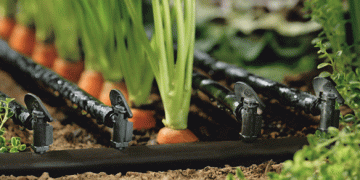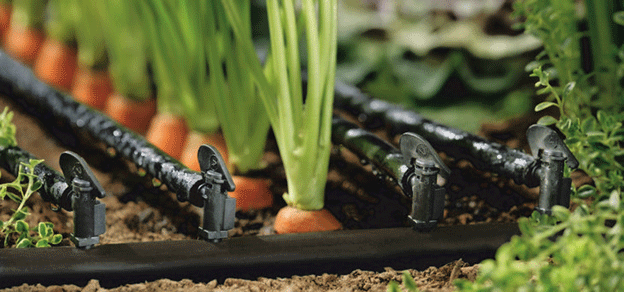Delphy, a leading agricultural research organization, has embarked on a groundbreaking research project at the Rusthoeve experimental farm in Colijnsplaat, Zeeland. Since 2019, Delphy has been investigating the effectiveness of drip irrigation and fertigation techniques to address pressing issues in water management and nutrient efficiency. This initiative is set to shape the future of sustainable agriculture in Zeeland and beyond.
The Need for Innovative Water Management Solutions
In Zeeland, the efficient management of water resources is crucial due to the region’s fluctuating rainfall patterns and the growing demand for fresh water in agriculture. The current project at Rusthoeve addresses these challenges through two main areas of research: advanced drip irrigation systems and the strategic application of nitrogen through fertigation.
1. The Evolution of Drip Irrigation Systems
Drip irrigation has become a standard technique for improving water efficiency in agriculture. Delphy’s research at Rusthoeve explores the use of drip irrigation across various crops to evaluate its effectiveness. This method, which delivers water directly to plant roots, minimizes water loss due to evaporation and runoff, unlike traditional overhead irrigation systems.
According to recent findings published in Agricultural Water Management, drip irrigation can reduce water use by up to 50% compared to sprinkler systems while increasing crop yields by 20-30% in many crops such as potatoes and onions. The study highlights that the precision of drip irrigation allows for better control of water application, which is essential for optimizing growth conditions for different crops.
2. Investing in Water Storage Solutions
One significant aspect of Delphy’s research is the investment in additional water storage facilities at Rusthoeve. By capturing and storing excess rainwater during wet periods, these facilities will provide a valuable resource during drought conditions.
The International Journal of Water Resources Development reports that effective water storage systems can enhance water availability for irrigation by up to 25% during dry periods. This strategy not only helps manage water resources more effectively but also supports the development of resilient agricultural practices.
3. The Role of Fertigation in Nutrient Management
Fertigation, the application of fertilizers through irrigation systems, is another focus of Delphy’s research. This technique combines water and nutrients in a single application, which can lead to more efficient fertilizer use and improved crop health.
Recent research in Horticultural Science shows that fertigation can increase nitrogen use efficiency by up to 30% compared to traditional fertilization methods. By delivering nutrients directly to the plant roots, fertigation ensures that plants receive a consistent and optimal supply of essential nutrients.
Delphy’s project investigates the use of staged nitrogen application in potato and seed onion cultivation, exploring how fertigation can improve nitrogen efficiency and crop yields. Findings from the Journal of Plant Nutrition and Soil Science indicate that careful management of nitrogen through fertigation can reduce leaching losses and enhance soil fertility.
4. Collaboration and Future Goals
Delphy’s research is supported by the Province of Zeeland and involves collaboration with various agricultural experts and institutions. This partnership aims to develop and implement innovative water and nutrient management practices that can be applied on a broader scale.
The Zeeland Agricultural Journal reports that collaborative projects like this one are vital for advancing agricultural technologies and promoting sustainable practices. The insights gained from Delphy’s research will contribute to future initiatives aimed at improving water efficiency and nutrient management in agriculture.
Delphy’s new research on drip irrigation and fertigation at the Rusthoeve farm represents a significant step forward in addressing water management and nutrient efficiency challenges in agriculture. By investing in advanced irrigation technologies and innovative nutrient delivery methods, this project seeks to enhance crop productivity and sustainability.
For farmers, agronomists, and agricultural engineers, the findings from this research will provide valuable knowledge on how to implement these techniques effectively. As the agricultural sector faces increasing environmental challenges, initiatives like Delphy’s offer promising solutions for more efficient and sustainable farming practices.































